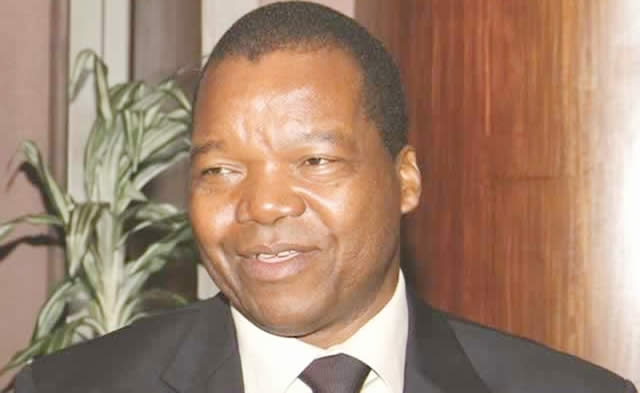
The Sunday News

Tinomuda Chakanyuka, Sunday News Reporter
THE Reserve Bank of Zimbabwe says it is drawing down from the US$215 million it secured from international finance institutions to deal with outgoing foreign payments to ensure that critical services that have been affected by shortage of cash are catered for.
Reports last week indicated that the country might face shortages of fuel since most people were using plastic money to buy the commodity, but there were no corresponding export earnings to import the fuel. This had made it difficult for fuel importers to make payments through their nostro accounts. A nostro account is a bank account held in a foreign bank and is usually denominated in the currency of that foreign country.
In his monetary policy review statement last month, RBZ Governor Dr John Mangudya announced that the bank has secured a $215 million Foreign Exchange/Nostro Stabilisation Facilities to deal with the delays in the processing of outgoing foreign payments by banks.
In an interview on Friday, Dr Mangudya said in the meantime the bank was drawing down from the fund to ensure that the country deals with the foreign currency shortages.
“We are in the short term addressing it (cash shortages) by drawing down on the foreign exchange stabilisation facilities that we have arranged to enhance nostro balances as we advised in the Monetary Policy Statement of USD$215 million,” he said
Dr Mangudya said the ultimate solution to the liquidity crunch was enhancing production and productivity in order to increase exports and cut on imports.
“As Zimbabweans, we need to enhance production and productivity in order to increase exports, fiscal space, and employment to reduce poverty and import dependence,” he said.
Commenting on the “cash burning” phenomenon that has started gaining traction owing to the cash shortages, Dr Mangudya said Zimbabweans were in denial mode that there were cash shortages, leading to the emergence of parallel markets.
Some unscrupulous individuals who have access to huge sums of cash are selling cash to desperate citizens at premiums of between six and 10 percent. Dr Mangudya called for a paradigm shift in the economy to deal with the prevailing challenges.
“The context of the issue is not about arbitrage or what you call ‘cash burning’. I think our economy or Zimbabweans are in a denial mode that there is a scarcity of foreign exchange in Zimbabwe as a result of a number of challenges. Thus, when there is scarcity of any commodity, including forex, parallel markets thrive. We need a great paradigm shift to transform the economy. The time to move forward for Zimbabwe in now,” he said.
Dr Mangudya, however, refused to be drawn to comment on the legality of cash burning.
“I would rather concentrate on the bigger picture as I advised you above as opposed to focus on peripheral issues, which as I advised you, are symptoms of an underlying phenomenon, which is lack of production and productivity. Zimbabwe is using the multi-currency exchange system, which basically means trading in foreign currencies,” he said.
Dr Mangudya also spoke on the export incentive scheme which he said was being misunderstood by some sections of society.
“So what you referred to as cash burning is a symptom of a shortage of forex in the market. The sustainable way is to grow exports since Zimbabwe depends on forex for both its domestic day-to-day use and for importation of goods and services.
“This is why we are promoting exports through the export incentive scheme which is continuously being misunderstood by some sections of our society, either deliberately or emotionally. Foreign exchange needs to be earned, period,” he said.
On bond notes, Dr Mangudya was not in a position to clarify on the actual date the notes will come into circulation, although earlier reports said bond notes will be available by month end. The Government is in the process of crafting a law to support the introduction of bond notes, which are backed by a $200 million Afreximbank facility.
@irielyan



